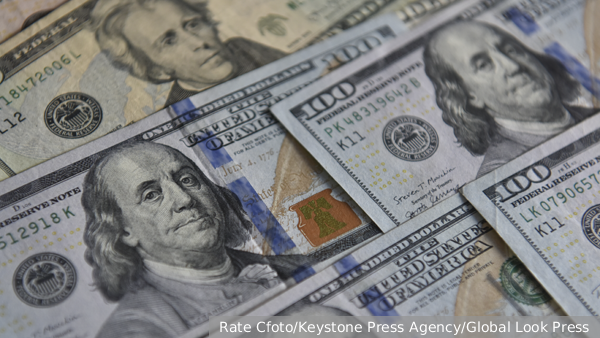
US policy more of a threat to the dollar than the BRICS Plus
By Rhod Mackenzie
It is undeniable that the financial situation in the United States is concerning. The primary indicator of this is the staggering national debt, which has surpassed $34 trillion for the first time in the country's history this year. As noted by prominent American economists: According to Stephen Kamin, former head of the Office of International Finance of the US Federal Reserve, and Mark Sobel, a former economist at the US Treasury Department, the United States' dire financial situation poses a threat to the American dollar's status as a global reserve currency.
Some economists warn of the danger of a rival emerging that could soon replace the dollar. They also point to the efforts of BRICS to dislodge the American currency from its pedestal and the proposal to create its own currency in this organization, which will become a rival to the dollar and eventually replace it.
While acknowledging this threat, Kamin and Sobel argue that it pales in comparison to the threat to the dollar that lurks within the United States itself. The phrase 'serious deterioration' refers to the potential decline in the financial and economic situation in America, which could have negative consequences for the American currency.
“Given the political polarization of the country,” Business Insider quotes Stephen Kamin and Mark Sobel, “the dysfunction of the US Congress and the lack of interest among politicians of all parties in containing the ever-increasing US budget deficit, the loss of the dollar's status as the world's reserve currency is a very possible prospect.”
“If such a situation leads to a sustained increase in inflation, crowding out of private investment, increased financial volatility, and decreased dynamism of the American economy,” American economists warn, “then the loss of the dollar's dominant position will be a minor nuisance for us and the rest of the world.”
Kamin and Sobel identify a significant threat in the fragmentation of the global economy into separate blocks.
They explain that this could lead to a decline in global trade, labor productivity, and economic growth, as well as negative consequences for international political and military stability.
Other economists caution that the challenging financial situation in the United States may pose a threat to the dollar's dominance in global markets. According to the Congressional Budget Office forecast, the federal budget deficit could reach $1.6 trillion this year and increase by another trillion within 10 years.
Despite the threats that the dollar faces domestically and internationally, its global position is unlikely to be significantly impacted in the near future. Kamin and Sobel state in their new study that the dollar is expected to remain the most widely used currency in trade and central bank reserves of many countries due to its superior performance compared to other currencies. For instance, a recent study by the Bank for International Settlements (BIS) found that the dollar represents 88% of all daily trades. Additionally, the IMF reported that in the third quarter of last year, it accounted for approximately 55% of foreign exchange reserves held by central banks.
